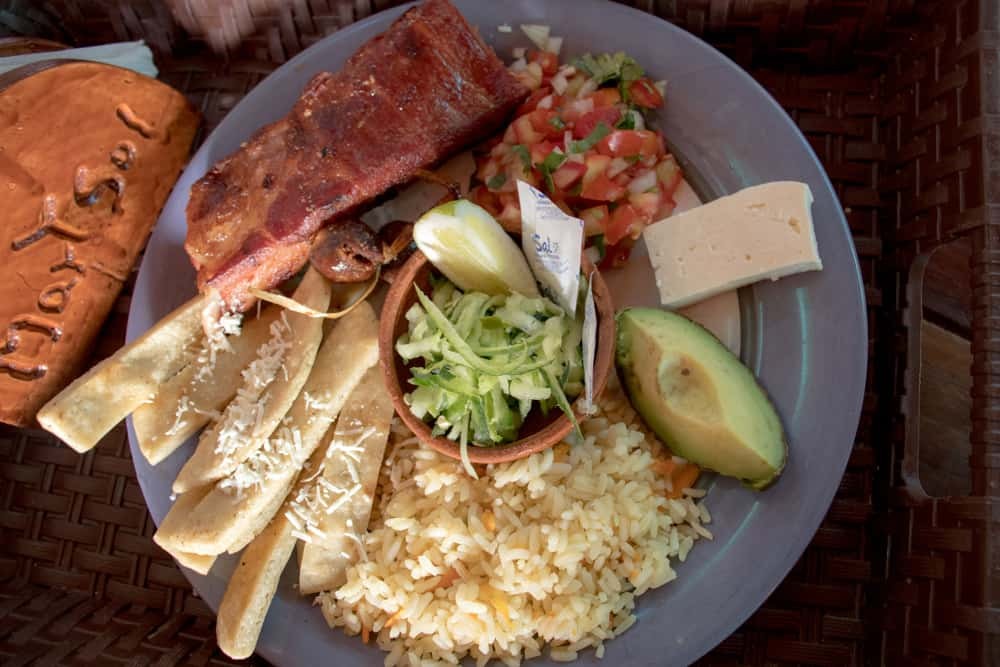
Salvadoran cuisine combines dishes from Spain with those of the indigenous populations of El Salvador, particularly the Maya, Lencas and Pipil peoples.
The gastronomy is mainly composed of locally sourced ingredients, in particular corn, beans, rice, chicken, beef, pork, seafood, game (garrobo, iguana, cusuco), dairy products and many fruits and vegetables. One of the most important beverages is coffee.
The most representative dishes of El Salvador are pupusas, tamales, mondongo soup, fried yuca, chicken soup, soup of beans, meat or chicken cakes and more.
Pupusa is a very common flatbread in El Salvador (and also in Honduras) made from corn flour or rice flour, similar to Venezuelan and Colombian arepa. In El Salvador, pupusa has been declared a national dish and has a specific day to celebrate it. It is usually stuffed with one or more ingredients.
Sopa de pata is a healthy soup made with various ingredients including starch, spices and meat, but what gives this soup a special flavor is that it is boiled with hooves from a cow. Other ingredients include tripe, cassava, sweet corn, squash, plantains and green beans.
A popular drink is Atoll. This drink is served hot or cold and is made from flour (from corn, rice or oatmeal), cane sugar and a flavor such as chocolate, vanilla or cinnamon. For example, the Atoll de Elote is made from normal corn and the Atoll Shuco from black corn. Horchata is the same type of drink, but has seeds (from a specific trumpet flower) or nuts as its basic ingredient. Nutmeg is often added to this in El Salvador. Furthermore, many fresh juices and lemonades are sold. The coffee is generally quite weak and with sugar. For good coffee it is therefore best to go to the more expensive specialty shops in the more luxurious shopping centers.
Rice with beans is a very popular meal across El Salvador as it’s expensive and nutritious. People even eat this for breakfast.
Gallo en chicha is a traditional Salvadoran dish, although it is cooked regionally in Central America, as the name suggests, it is made from rooster, Salvadoran chicha, and brown sugar. You could compare or say that it is the local version of Coq-au-vin. Like many of the Salvadoran recipes, this is an exotic mix of European influences and Salvadoran ingredients and cooking traditions, resulting in a fine dish.







